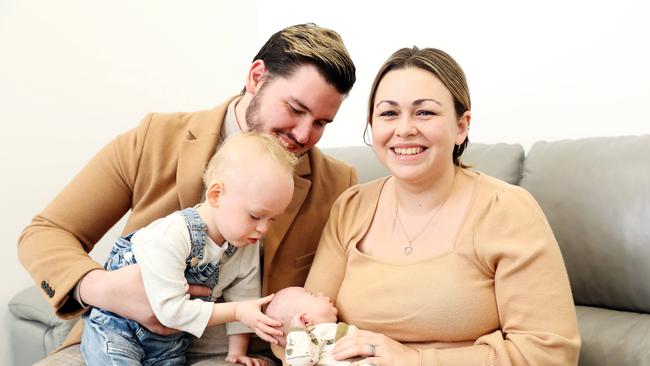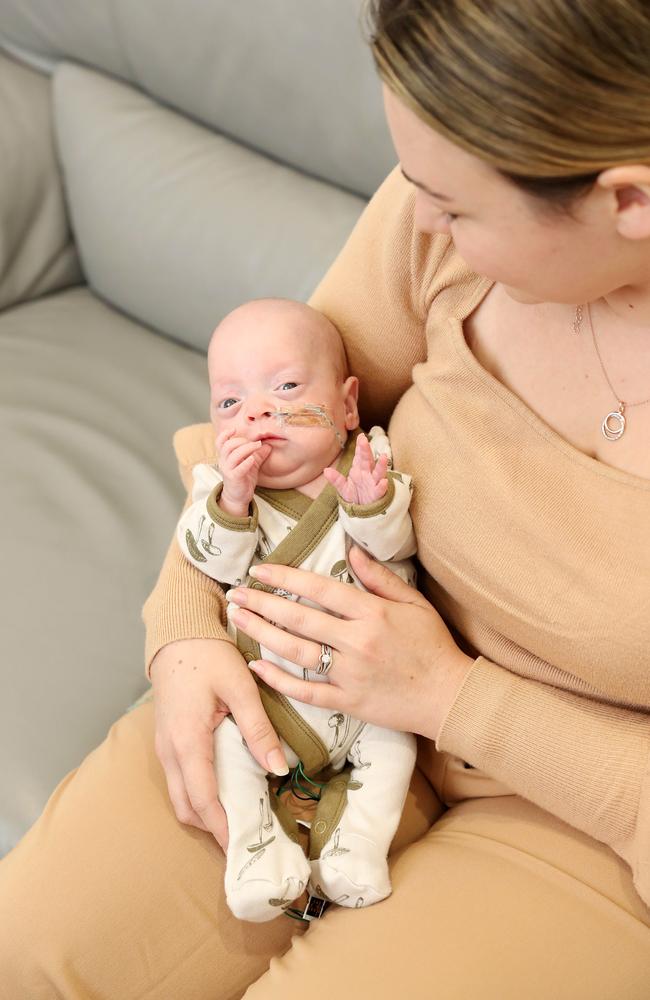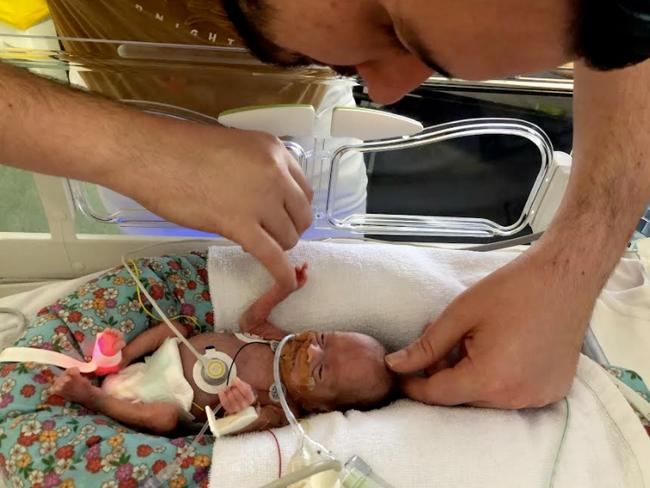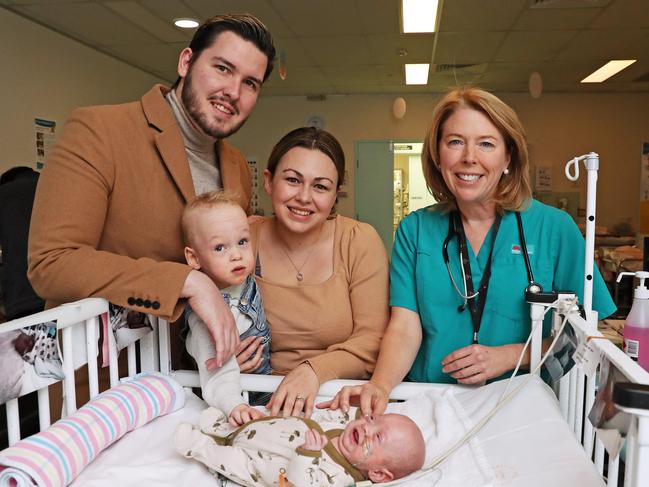Royal Hospital for Women: Premature baby born at 23 weeks set to go home
Being born at 23 weeks is far too soon to come into the world and few survive, but this week, baby Aurora gets to go home after navigating her extreme prematurity.

NSW
Don't miss out on the headlines from NSW. Followed categories will be added to My News.
Aurora was due to be born on Sunday but she entered the world way back on February 4 — meaning she needed a miracle to make it this far.
Alyscea Andriske was just 23 weeks into her pregnancy when she was raced from her Ulladulla home by ambulance to Sydney’s Royal Hospital for Women.
“My water broke in the ambulance and I just hoped I could get to the Royal Women’s because I know they can work miracles — but if I had her in the ambulance it wouldn’t be good,” Ms Andriske, 24, said.

Most babies born at 23 weeks are not ready for life outside the womb. Their organs are underdeveloped, their lungs collapse on themselves, their eyes are still fused shut and their skin is barely able to contain the fluids inside their tiny bodies.
Aurora weighed just 695 grams.
In those scary early weeks, she suffered lung complications and a small brain bleed but her courageous nature was quickly evident.
“She is very sassy and feisty,” her proud dad Ethan Andriske said.
“She pulled her tubes out every single day, almost,” Ms Andriske said.

What is also remarkable is Aurora has a big brother Tobias, now two, who also survived being born at 23 weeks.
“It was terrifying it was happening again, but also I knew what I was in for and how amazing the doctors and staff can be and I only have Tobias and Aurora now because of them,” Ms Andriske said.
Neonatologist and paediatrician Dr Meredith Ward is part of the miracle maker team that cares for more than 1000 of the state’s sickest and smallest babies each year. Dr Ward cared for both Aurora and Tobias.
“The majority of babies born at this gestation still do not survive. Survival for a 23 weeker is only 30 per cent, so to be born at 23 weeks is still a lifetime crisis,” Dr Ward said.
“Of the babies survive around one-third who go home will be completely normal in terms of development, 40 per cent might have some mild impairment and 25 per cent will have significant problems with disability, like blindness or hearing impairment or significant cerebral palsy.”

But both Tobias and Aurora are doing exceptionally well, she said.
After more than three months in the neonatal intensive care war Aurora, now weighing 2.64kg, is set to go home this Thursday.
“We have beaten a lot of odds … we have two 23 weekers, they are both miracles and we are so grateful and blessed,” Mr Andriske said.
DRUG TO PREVENT PRETERM BIRTH GETS PBS SUBSIDY
A drug that can prevent women giving birth prematurely will now be subsidised by the Pharmaceutical Benefits Scheme from June 1.
Oripro is a progesterone treatment for pregnancies that are at risk due to a shortened cervix — one of the major causes for preterm birth — and for women where there is a history of spontaneous preterm birth.
Scripts to date have cost high-risk women $175 for a one-month supply but will now cost $41.30 or $6.60 with a concession card.
Preterm birth occurs where the baby is born before 37 weeks gestation. Those born prematurely are at a higher risk of complicated medical problems including life-threatening infections, cerebral palsy, respiratory and heart complications, which can be fatal or lead to serious long-term disabilities.
One in 11 babies are born prematurely in Australia and spontaneous preterm birth accounted for 14 per cent of all peri-natal deaths and one third of peri-natal deaths of babies of Indigenous mothers.
“Better access to effective options that prevent preterm birth are very welcome,” Dr Chris Lehner, Obstetric Co-Lead at the Royal Brisbane and Women’s Hospital in Brisbane said.




